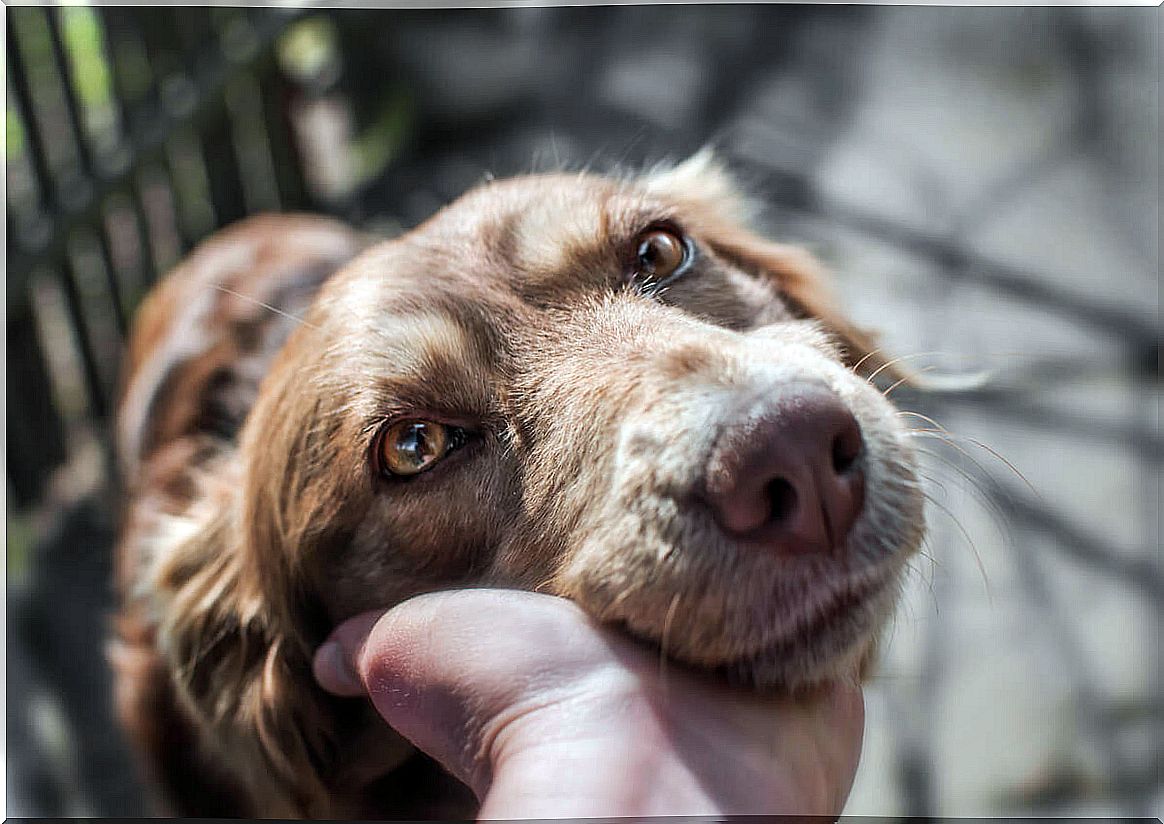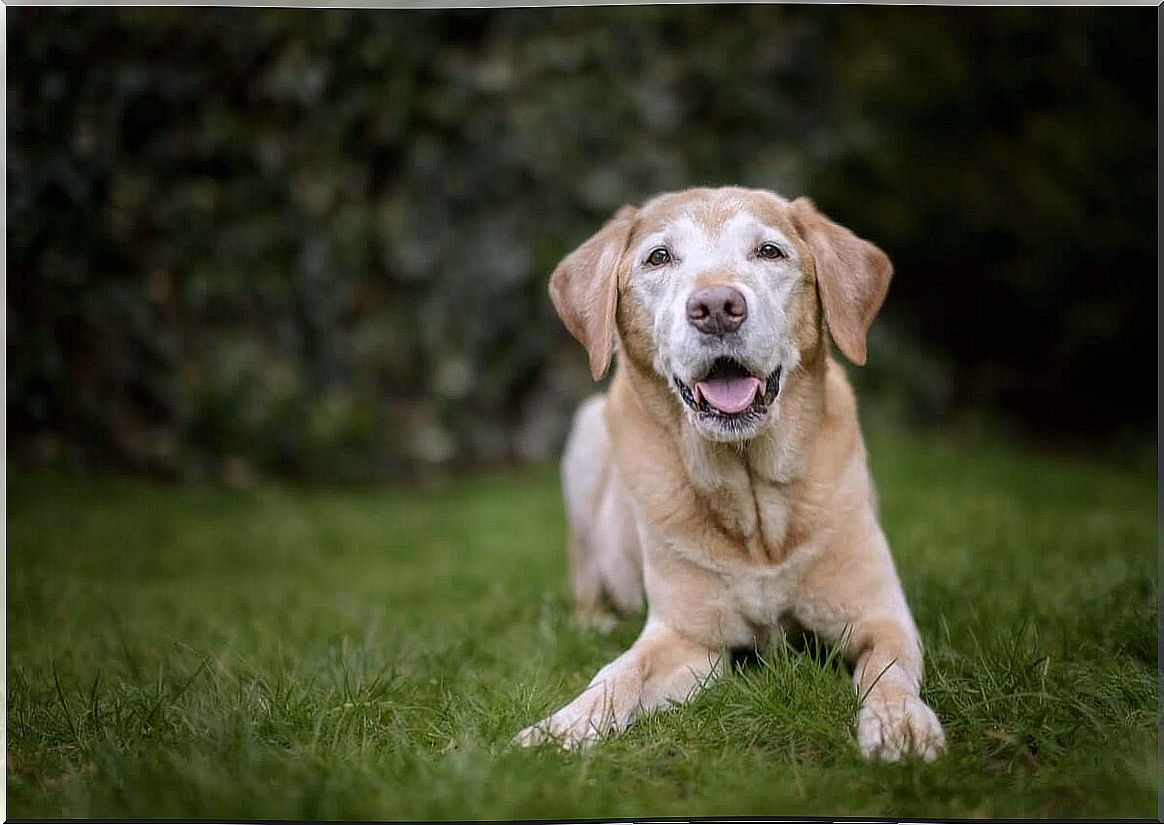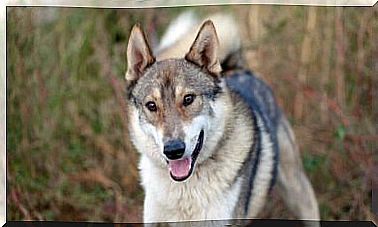Signs Of Senility In Dogs

As your pet ages, it’s normal to see signs of senility. Although it is not easy to assume, old age is a process that reflects the passing of time and must be accepted.
For this reason, you should be able to identify some symptoms of old age. So, that way, you can face them and facilitate this phase for the animal.
However, you may have questions about what the most characteristic signs of senility would be. Here are some symptoms.
What is senility?
Old age brings with it a series of physiological and mental changes. This impairment of cognitive and bodily functions is called senility. It is usually a concept that can be confused with dementia. However, this is not the case, as dementia entails the loss or disturbance of mental faculties.
Likewise, the aforementioned pathology is related to several symptoms involved with mental deterioration. Therefore, mental decline is not a normal consequence of aging.

Signs of old age
Senility leads to loss of cognitive and physiological functions in dogs and cats. Cognitive dysfunction manifests itself through symptoms such as the following.
sedentary behavior
Aging causes the dog to reduce its activity, decreasing its energy. Therefore, as they get older, dogs become sedentary.
They also suffer from decreased muscle tone and strength, especially in the extremities. Thus, your ability to move is reduced. Also, they can develop degenerative joint disease. One of the best known diseases is arthritis.
Loss of control of basic behaviors
Among the most characteristic symptoms of senility is loss of control. For example, the animal can lose control over its own urinary system.
Another surprising behavior is that your sense of smell, vision or hearing decreases. As can be seen, the aforementioned illnesses are a clear sign of physical deterioration.
personality changes
Older dogs can experience personality changes, making them more irritable. It has also been observed that they are less curious about new objects.
Decreased interaction with other individuals
Senility is also associated with changes in social behavior. This implies a decrease in interaction with people, which can be influenced by disorientation and memory loss. Also, they may show difficulty recognizing familiar places or people.
other symptoms
In addition to the symptoms mentioned above, others may appear, such as:
- Disturbance of the sleep cycle.
- Memory loss.
- Learning delay.
- Decrease in curiosity and exploratory behavior.
- Trouble locating food.
What can you do to make your pet comfortable?
Unfortunately, there is nothing we can do to stop aging. However, it is possible to consider a series of tips to facilitate this transition for the animal.
Perform regular light physical exercise
As already mentioned, a clear sign is muscle weakness and a sedentary lifestyle. This causes exhaustion in the dog and leads to joint disease.
One way to reduce these problems is to get regular light exercise. In this way, the dog can maintain the walk routine and distract himself from the discomfort.
Changes in food
Other characteristic signs of senility are loss of smell, vision, hearing and taste. In addition, they can also experience tooth loss or other oral problems such as infections.
This makes it extremely difficult for the dog to eat hard foods such as dog food. By adding new foods or eliminating those that are hard to eat, you stimulate the animal.
Also, an elderly dog needs an increased supply of vitamins and minerals. Therefore, it is a good idea to make dietary changes whenever your veterinarian advises.
Remedies to relieve symptoms
Even if you follow the advice above, it might not be enough. Occasionally, veterinarians may recommend administering medication.
The function of these drugs is to alleviate the symptoms derived from these degenerative processes. Usually, your veterinarian can prescribe pain relievers or chondroprotective drugs.
Therefore, only the healthcare professional will know which medications are suitable. Every dog goes through certain circumstances, so you should never give medications without medical supervision.

We can conclude that the signs of senility are typical of the passage of time, especially in old age. It is important to know how to distinguish these symptoms, as some can be confusing.
However, whenever you notice any strange behavior or attitude, you should consult a veterinarian. The information presented here is merely informative and only a professional will be able to determine the steps to be followed in each particular case.









